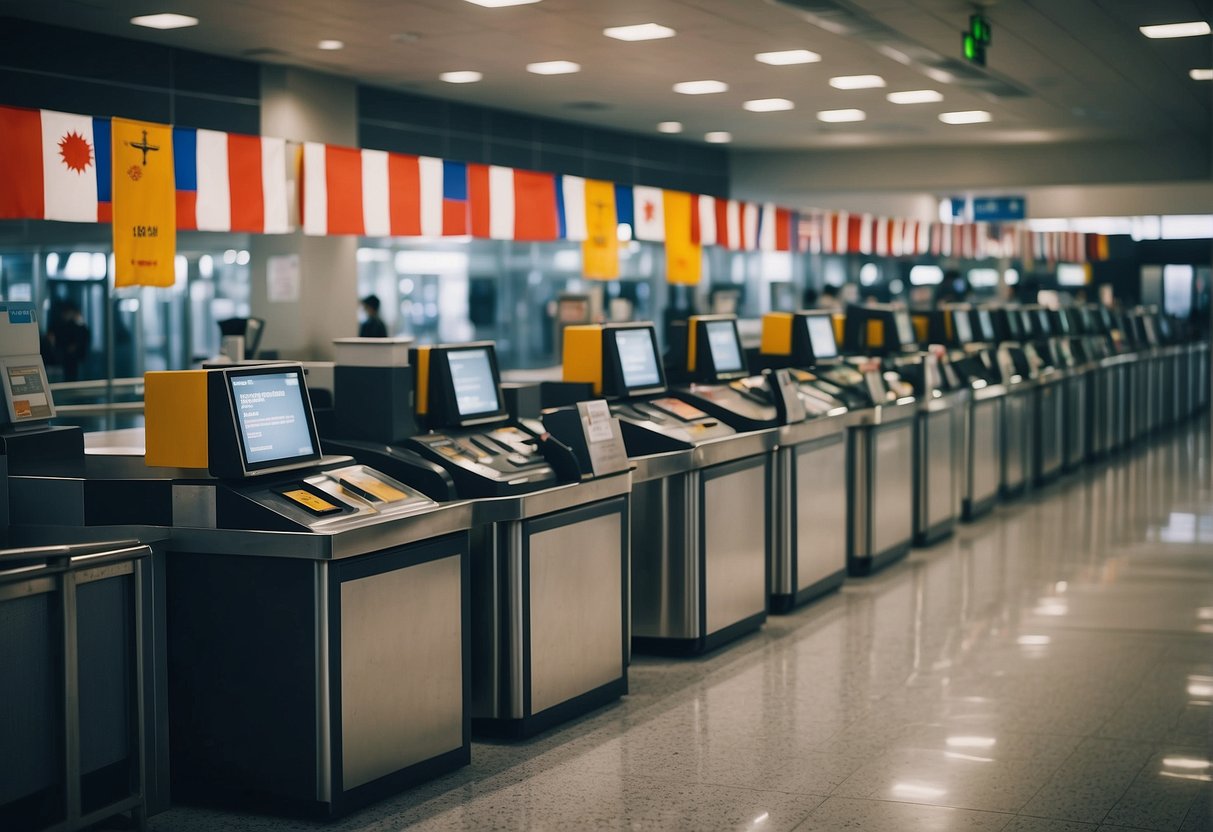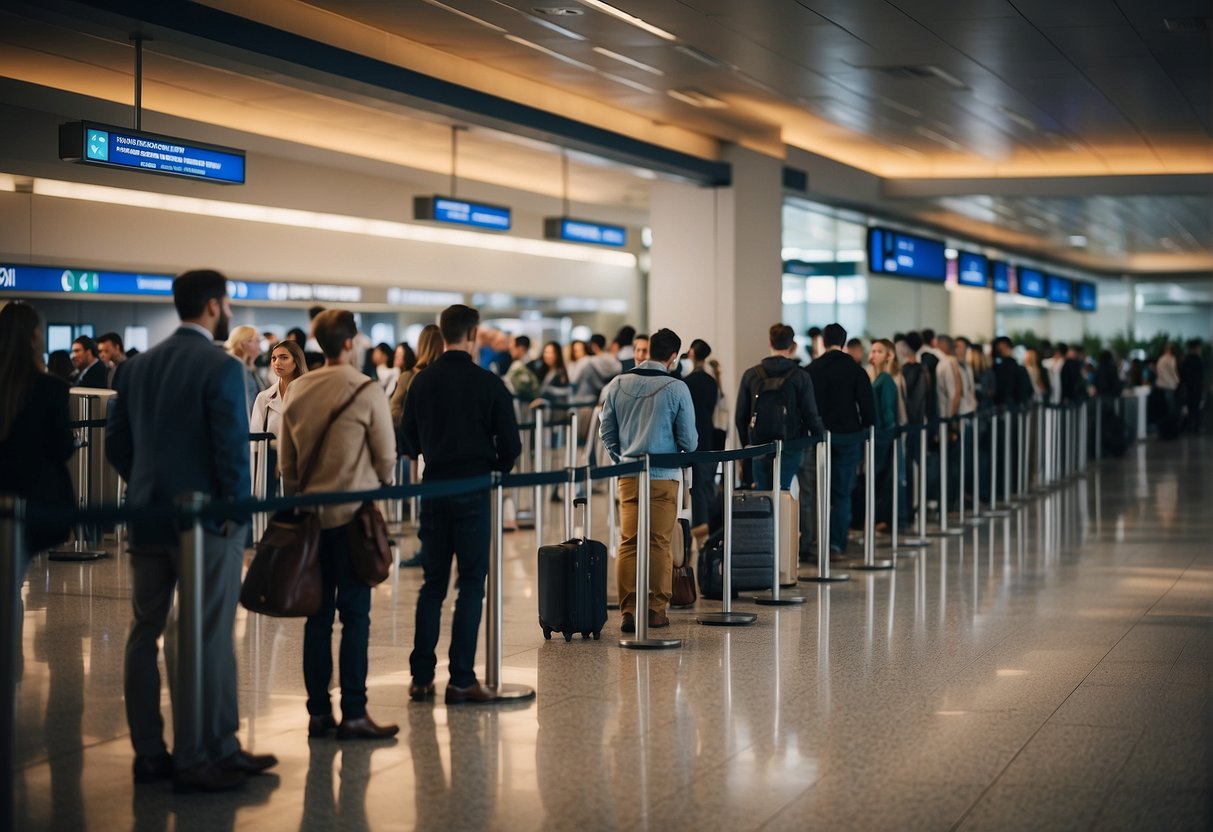With globalization shaping the modern workplace, jobs that require international travel are becoming more prominent and enticing for those with wanderlust. These positions span across various industries, from diplomacy to business development, and often promise the opportunity to explore new cultures while building a career. They cater to professionals of all levels, from entry-level employees eager to gain international exposure to seasoned executives overseeing global operations. These roles may come as full-time positions, offering stability and extensive travel, or as part-time or contractual work, allowing for more flexibility.

Selecting a career that includes international travel necessitates careful consideration of financial implications, work-life balance, and the adaptability to work in diverse environments. It is also crucial to be well-informed about the job benefits, special requirements for working abroad, such as visas or language proficiency, and strategies to secure such positions. Job search engines like Indeed and professional networking sites like LinkedIn offer a wide array of listings for jobs with travel requirements. They provide a platform for job seekers to filter opportunities by location, experience level, and field of expertise, making the search for international positions more accessible.
Key Takeaways
- Jobs that require international travel are diverse and available across multiple industries.
- Thorough research on financial aspects and work arrangements is essential for prospective applicants.
- Professional networking sites are valuable resources for finding international travel-related job opportunities.
Types of International Jobs
International jobs span various employment types, each offering unique opportunities for professionals seeking to traverse the globe while earning a living. From long-term commitments to fleeting stints abroad, these roles are shaped to fit diverse career paths and life plans.
Full-Time Positions
Full-time international jobs provide stability and often come with a comprehensive benefits package. Employees may find themselves immersed in foreign cultures, taking on roles such as international travel careers where they can have structured work schedules and opportunities for advancement.
Part-Time Roles
Part-time roles offer flexible hours, allowing for a balance between work and exploration. These positions are suitable for individuals who prioritize travel while earning, without committing to a single employer full-time.
Contract Work
Contract work enables professionals to engage in international travel required jobs for a predetermined time. It’s ideal for those seeking a clear beginning and end to their foreign work assignments, often with the possibility of extension.
Temporary Assignments
Temporary assignments could last anywhere from a few weeks to several months. This category often covers covering for an absent employee or completing a specific project. Temporary work can act as a springboard for those looking to dive into international travel for singles, providing short-term experiences in a variety of locations.
Internships
Internships abroad help individuals gain valuable skills in their chosen field while experiencing life in a new country. Whether paid or unpaid, these programs are pivotal in building an international career, especially for students and recent graduates.
Volunteer Opportunities
Volunteering internationally can provide enriching experiences beyond traditional employment. Volunteers are often vital contributors to local communities, involved in activities ranging from education to conservation, all while experiencing the nuances of a culture firsthand.
Industry-Specific Roles

Many careers mandate international travel, and these roles vary widely across different industries. For those seeking to combine their professional skills with the opportunity to explore the globe, certain sectors offer more possibilities than others.
Technology Sector
In the tech industry, roles often involve working with global teams and clients. International travel can be a requirement for positions such as IT consultants or software developers. Associates in multinational companies may need to visit foreign offices or attend global conferences to stay abreast of technological advancements.
Healthcare Professionals
International travel nurses provide critical services around the world, often moving to areas with pressing healthcare needs. They might be employed by agencies or healthcare providers to deliver care in diverse settings, contributing to global health initiatives.
Education and Research
Academics and researchers frequently travel to participate in international conferences, conduct fieldwork, or collaborate with fellow scholars. Education directors might visit global campuses or partner with international educational institutions to broaden their institution’s reach and resources.
Hospitality and Tourism
This sector thrives on global mobility, with jobs ranging from hotel management to travel guides. Work within companies like Marriott Bonvoy Homes and Villas can involve ensuring guests receive high-quality accommodation services internationally, providing vast opportunities for travel and cultural engagement.
Business and Finance
International business roles, including consultants and finance directors, often require travel to manage cross-border transactions, meet with clients, or oversee international operations. Companies such as Dnata or Feyerinc, operating globally, necessitate employees who are willing to travel to ensure smooth business in different markets.
Levels of Professional Experience

In the realm of jobs that demand international travel, various levels of professional experience dictate the scope of opportunities and responsibilities. From fresh graduates looking to enter the global workforce to seasoned leaders aiming to steer multinational companies, each tier presents its unique career trajectories.
Entry-Level Opportunities
Entry-level positions are gateways for individuals eager to embark on a career that includes travel. These roles often require less experience, focusing on foundational skills and offering on-the-job training. An Associate role, for instance, might involve assisting with market research across different countries, allowing for exposure to international business practices while building professional competencies.
Mid-Senior Level Careers
As professionals advance, mid-senior level careers provide substantial growth in international job responsibilities. Individuals are expected to carry more complex tasks, such as project management or strategic planning, often encompassing multisite coordination. The roles might include Senior Agent positions that manage land and operations, integrating travel as a key component for executing fieldwork and stakeholder engagement.
Executive and Director-Level Jobs
At the executive and director level, jobs typically involve leadership and decision-making that impacts the company at a global scale. A Director might oversee international partnerships, requiring a sophisticated understanding of cross-cultural communication and extensive travel to negotiate high-level contracts. Executives are often tasked with steering the company’s vision abroad, which demands significant travel to represent the company’s interests in various international settings.
Financial Consideration of International Jobs
When assessing the financial aspects of international travel jobs, it’s crucial to consider the salary range and how it aligns with the cost of living abroad, potential taxes, and additional expenses.
$40,000+ Salary Range
Jobs with a salary starting at $40,000 often include positions such as entry-level finance analysts or coordinators. At this level, professionals might explore roles that involve basic financial operations linked to travel, like managing travel expenses or coordinating travel budgets for a small team. They must be conscious of how currency fluctuations can affect their earnings.
$60,000+ Salary Range
With a $60,000 threshold, positions might include mid-level roles in finance at larger companies. Employees at this salary band benefit from more significant international exposure and responsibilities, including the oversight of international transactions and exchange rate considerations.
$80,000+ Salary Range
Earning $80,000 or more, international finance professionals may take on more specialized roles. They often handle complex global financial strategies and work closely with international teams to ensure compliance with various country-specific financial regulations. Travel perks like travel credit cards become increasingly important for efficiency and financial benefit in these roles.
$100,000+ Salary Range
At $100,000+, senior finance roles such as international finance managers or directors are common. These positions usually require extensive travel and the ability to navigate diverse fiscal environments adeptly. Professionals might manage large budgets across multiple countries and require a comprehensive understanding of international finance law.
$120,000+ Salary Range
The top-tier of international travel finance jobs starts at $120,000 and includes high-level leadership positions, such as CFOs or finance VPs of multinational corporations. These roles demand a vast knowledge base, expertise in global market trends, and the skills to make high-stakes decisions that reflect an understanding of complex international networks.
Work Arrangements and Locations
In today’s job market, work arrangements are diverse, ranging from remote positions to roles necessitating extensive travel. Employers offer various models to accommodate employee needs and job requirements.
Remote Work Opportunities
Remote positions allow individuals to work from anywhere, be it from a home office in New York, NY or a coffee shop in Boston, MA. Employees benefit from flexibility and companies often see increased productivity. It’s advisable to have essential tools like an international travel SIM card for seamless communication across borders.
On-Site Assignments
On-site roles demand the employee’s physical presence at a specific location. This could be a project site in a metropolitan hub or a field assignment in remote areas. For these assignments, professionals may travel domestically or internationally, depending on the scope of the project. On-site roles provide opportunities for hands-on experience which is crucial in industries like healthcare or construction.
Hybrid Work Models
Hybrid work models blend remote and on-site work, offering a balance between travel and home office days. For instance, an employee might spend part of the week at the headquarters in New York, NY and work remotely from Boston, MA for the remainder. This model provides flexibility while maintaining the benefits of in-person collaboration.
Domestic and International Travel Requirements
Jobs with travel requirements can involve short-term trips or longer placements in various locations. For international travel, employees should be aware of specific requirements such as securing an international travel adapter plug and understanding the TSA regulations for a smoother journey. Airlines like American Airline and Air India frequently cater to business travelers with routes that connect major cities such as New York, NY and Boston, MA, with global destinations.
Job Search Strategies

When embarking on a job search for positions that require international travel, leveraging the right tools and strategies is crucial for success.
Utilizing LinkedIn
LinkedIn is a powerful platform for professionals seeking job opportunities that involve international travel. Job seekers should optimize their profiles with relevant international experiences and skills to attract potential employers. Utilizing the platform’s search options to filter for roles that specifically mention travel requirements can substantially streamline the job hunt.
Exploring Job Boards
Dedicated job boards are an invaluable resource for finding travel-centric careers. Candidates should target boards that specialize in their field of interest, such as airline careers or international business roles. Regularly checking these job boards and setting up job alerts can keep job seekers updated on the latest opportunities. In addition, some boards offer resources such as an international travel packing list which may be useful once a job is secured.
Networking Opportunities
Networking is key in uncovering hidden job opportunities. Attending industry conferences, seminars, and online webinars can introduce job seekers to a wealth of contacts who may know of companies in need of international travelers. Connecting with professionals and sharing one’s aspirations to work internationally can open doors to unexpected opportunities, such as finding a mentor who provides insights on tips for flying internationally.
Understanding Employee Benefits
When considering jobs that require international travel, it’s crucial to understand the various employee benefits offered to support the global lifestyle these roles entail.
Health and Insurance Benefits
Health insurance is a fundamental benefit for international travelers, often including both medical and dental insurance plans. Life insurance and vision insurance also play critical roles in safeguarding employees’ well-being. For those frequently traveling abroad, selecting robust international travel insurance is essential to cover any healthcare scenarios that might occur overseas.
Financial and Retirement Plans
Employees typically look for strong financial security through benefits such as 401(k) plans, which are pivotal for long-term savings and retirement planning. Companies might offer matching contributions to enhance the appeal of these financial benefits, thereby encouraging employees to save for their retirement effectively.
Paid Time Off and Leave Policies
Paid time off (PTO) policies are particularly significant for jobs with international travel demands, allowing employees to rest and recharge. Comprehensive leave policies might include vacation days, sick leave, and holidays, aligning with the need for flexibility and recovery during extensive travel periods.
Special Requirements and Considerations

When pursuing jobs that necessitate international travel, professionals should be mindful of specific requirements and considerations that could impact their work and personal life.
Physical Demands of the Job
Jobs with international travel often involve long periods of transit, irregular hours, and adapting to various climate conditions. Airline pilots or flight attendants, for instance, can experience extended periods of standing or irregular sleep patterns due to time zone changes, which can impact their physical well-being.
Work Schedule and Timing
The nature of these jobs may require being away from home for a considerable amount of time, which can range from a few days to several weeks or even months. For some professions, such as travel nurses or geoscientists, schedules can also be highly unpredictable, sometimes with the need to be on call or available for last-minute assignments.
Relocation and Mobility
A willingness to relocate frequently or operate from different global locations is crucial for professionals in international roles. Such relocation often comes with the need to adapt quickly to new cultures and work environments. Individuals should be prepared for the logistical aspects of moving, which could include finding accommodation or managing international travel with a newborn.
Legal and Privacy Issues
International work requires an up-to-date passport, and in many instances, it’s advisable to be aware of the passport’s expiration requirements for different countries. Additional legal considerations include obtaining the necessary visas, understanding tax implications, managing healthcare abroad, or ensuring all paperwork for traveling with pets meets the destination country’s regulations. During such work, professionals must safeguard sensitive information, especially when traveling to locations where privacy laws may differ significantly from their home country.
Frequently Asked Questions

The following questions address fundamental aspects of careers that involve international travel, providing insights into various facets from job types to compensation expectations.
What types of careers frequently involve international travel?
Careers that typically require international travel include roles in diplomacy, international sales, aviation, consulting, and journalism. Employees in these areas often find themselves jet-setting around the globe to meet clients, cover stories, or manage international relations.
How does one find employment opportunities that include global travel?
Securing a job that includes global travel can be achieved by targeting multinational companies or sectors known for international operations. Networking, attending industry events, and utilizing job boards that focus on travel-required positions are effective strategies.
What qualifications are typically required for jobs that entail traveling abroad?
Jobs requiring travel abroad usually necessitate cultural sensitivity, knowledge of a foreign language, and professional qualifications specific to the role, such as a pilot’s license for aviation careers or a business degree for international consultants.
In which industries are jobs that require international travel most commonly found?
The aviation, tourism, international business, and foreign service sectors are some of the most prevalent industries offering jobs that demand international travel.
What are the benefits and challenges of pursuing a career with international travel components?
A career with an international travel component can offer the chance to explore diverse cultures and gain a global perspective, yet it may also pose challenges such as differing international flight status, time away from home, and potential safety risks.
Can an employee expect additional compensation for roles that require frequent international travel?
Yes, employees may receive higher salaries, per diems, or travel allowances to compensate for the requirements of international travel. Additionally, they might get access to perks like frequent flyer miles or company-paid accommodations.
Leave a Reply